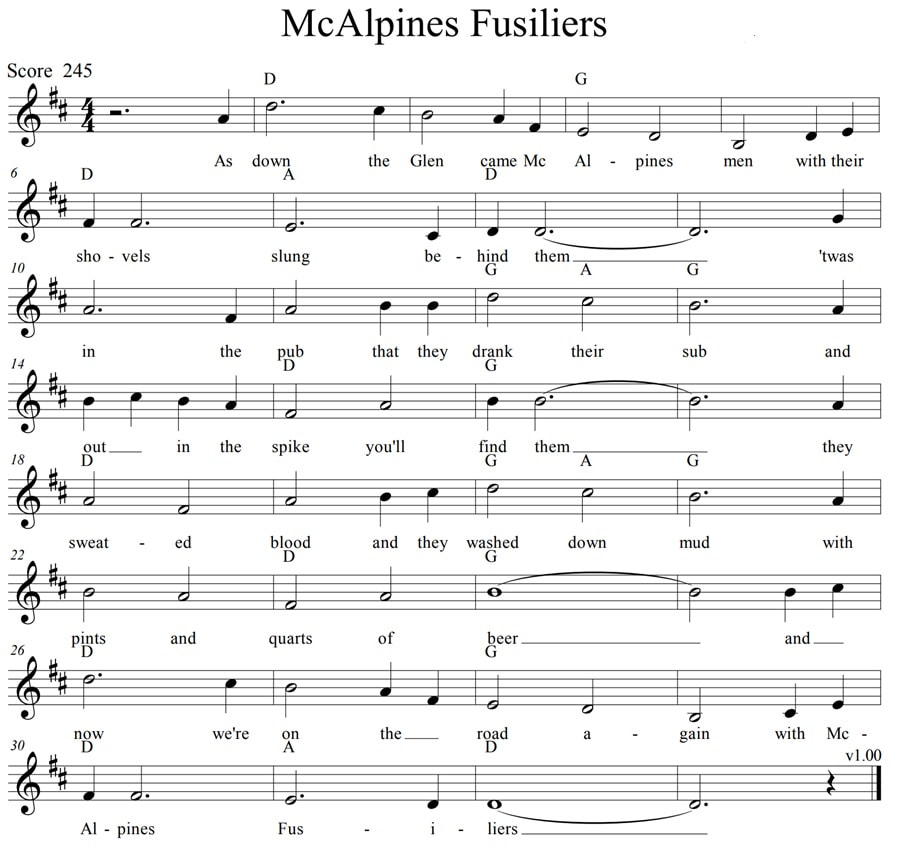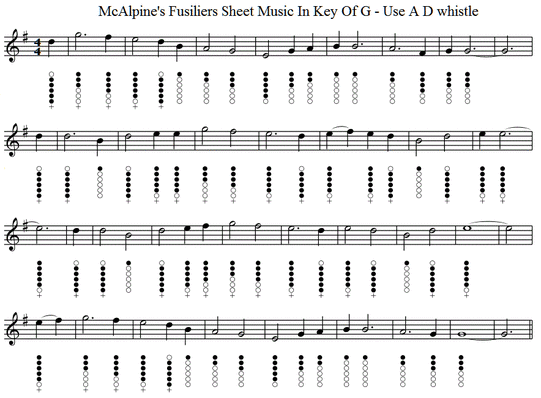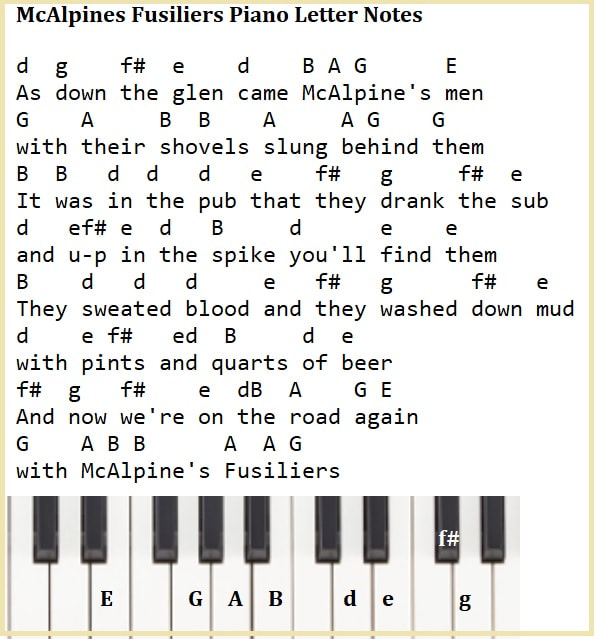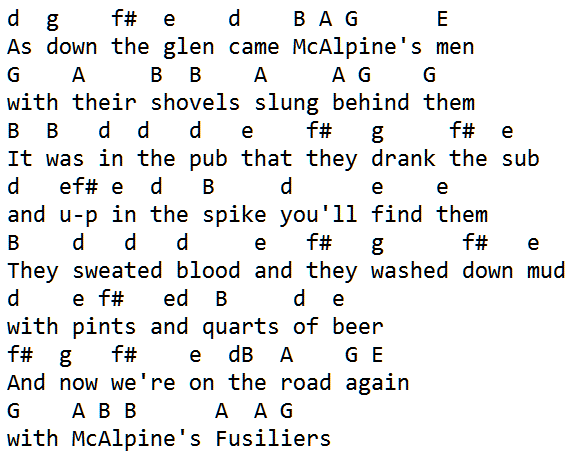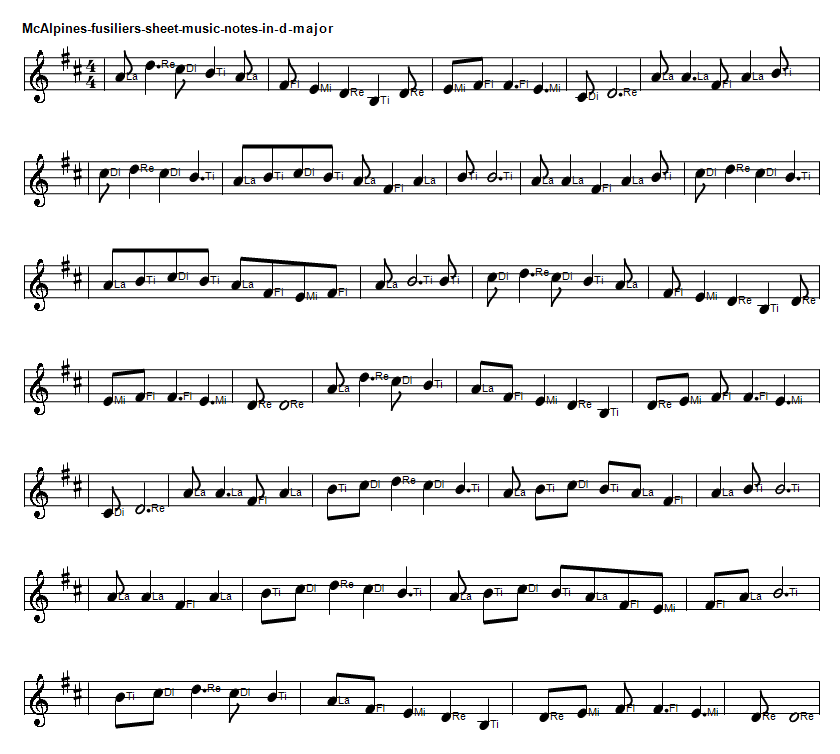McAlpines Fusiliers' sheet music and tin whistle notes
McAlpine's Fusiliers Easy Tin / Penny Whistle Sheet Music Notes. Recorded by The Dubliners and written by Irish singer / songwriter Dominic Behan. This version by The Ronnie Drew Group who later became The Dubliners. Ciaran Burke on tin whistle, Bobby Lynch on guitar along with Ronnie, Barney McKenna on banjo and John Sheehan on the other whistle. There's an easy to follow video showing how to play the tune on the piano keyboard using basic letter notes. The song lyrics and chords of McAlpine's Fusiliers which only uses a couple of the basic chords is also include and suitable for beginners. This is one of those well known Irish songs that was never really a hit or recorded by anybody except the Dubliners, you could say they made it their own. But, it did get recorded by Irish ballad group The Whistlin' Donkeys in 2019 who done a great job on the song. McAlpines fusiliers piano keyboard letter notes now added for beginners plus a pdf file.
| mcalpines-fusilierspiano-sheet-music-with-chords-pdf.pdf |
Below is the list of sheet music and tin whistle songs that are in my ebooks. This is the largest collection of tin whistle songs ever put together.[over 800 songs ] Including folk, pop and trad tunes plus German And French songs along with Christmas Carols.
All of the sheet music tabs have been made as easy to play as was possible. All the songs have lyrics.
The price of the ebooks is €7.50
All of the sheet music tabs have been made as easy to play as was possible. All the songs have lyrics.
The price of the ebooks is €7.50
The notes below are the one's I'm playing in the video. They are only slightly different than the sheet music and are in the same key. It's up to yourself how you want to play it.
McAlpines sheet music notes in the key of D Major in Do Re Mi
